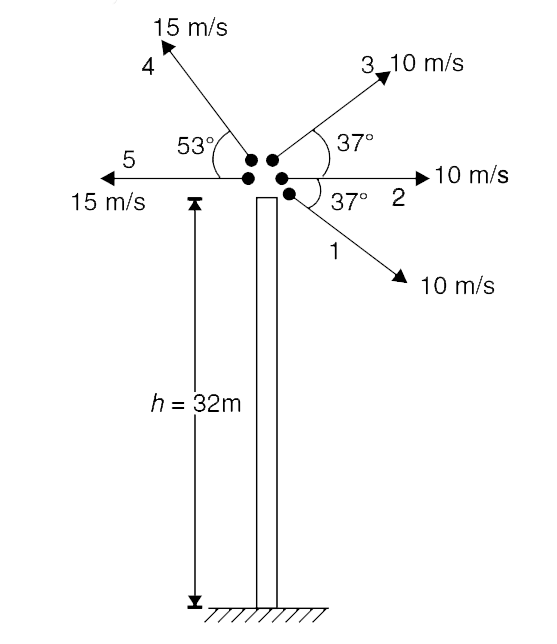IN a headon collision between two particles, is it necessary that the particles will acquire a common velocity at least for one instant?
Step by step video & image solution for IN a headon collision between two particles, is it necessary that the particles will acquire a common velocity at least for one instant? by Physics experts to help you in doubts & scoring excellent marks in Class 11 exams.
Topper's Solved these Questions
- BOOK - PHYSICS GALAXY - ASHISH ARORACHAPTER - LINEAR MOMENTUM & ITS CONSERVATIONEXERCISE - Conceptual MCQ s single option correct30videos
LINEAR MOMENTUM & ITS CONSERVATION
- BOOK - PHYSICS GALAXY - ASHISH ARORACHAPTER - LINEAR MOMENTUM & ITS CONSERVATIONEXERCISE - Numerical MCQ s75videos
LINEAR MOMENTUM & ITS CONSERVATION
- BOOK - PHYSICS GALAXY - ASHISH ARORACHAPTER - LINEAR MOMENTUM & ITS CONSERVATIONEXERCISE - Practive Exercise28videos
LINEAR MOMENTUM & ITS CONSERVATION
- BOOK - PHYSICS GALAXY - ASHISH ARORACHAPTER - KINEMATICSEXERCISE - Unsolved Numerical Pro.83videos
KINEMATICS
- BOOK - PHYSICS GALAXY - ASHISH ARORACHAPTER - NEWTONS LAWS OF MOTIONEXERCISE - Unsolved Numerical Problem81videos
NEWTONS LAWS OF MOTION
Similar Questions
Five particles are projected simultaneously from the top of a tower that is h=32m high. The initial velocities of projection are as shown in figure. Velocity of 2 and 5 are horizontal.

(a) Which particle will hit the ground first?
(b) Separation between which two particles is maximum at the instant the first particle hits the ground?
(c) Which two particles are last and last but one to hit the ground? Calculate the distance between these two particles (still in air), at a time 0.3s after the third particle lands on ground.
[g=10m/s2,tan37∘=34]View SolutionConsider a collision between two particles one of which is at rest and the other strikes it head on with momentum P1. Calculate the energy of reaction Q in terms of the kinetic energy of the particles before and they collide.
View Solution
Knowledge Check
- Question 1 - Select One or More
In an elastic collision between two particles
Anet external force is zeroBthe kinetic energy of the system before collision is equal to the kinetic of the system after collision.Clinear momentum of system before collision = linear momentum after collisionDthe total energy of the system is never conserved. - Question 2 - Select One or More
In an elastic collision between two particles
Athe total kinetic energy of the system is always conserved.Bthe kinetic energy of the system before collision is equal to the kinetic energy of the system after collision.Cthe linear momentum of the system is conserved.Dthe mechanical energy of the system before collision is equal to the mechanical energy of the system after collision. - Question 3 - Select One
During inclined collision of two particle
AKEf∈al−KE∈itialBKEf∈al must be greater than KE∈itialCKEf∈al must be less than KE∈itialDKEf∈al may be greater or less than KE∈itial
In an elastic collision between two particles
View SolutionIn a one-dimensional collision between two particles, their relative velocity is →v1 before the collision and →v2 after the collision
View SolutionIn a one-dimensional collision between two particles, their relative velocity is →v1 before the collision and →v2 after the collision.
View SolutionThe relation between the particles velocity and wave velocity is -
View SolutionThe velocity of a particle at an instant is 10m/s. After 5sec, the velocity of the particle is 20m/s. Find the velocity at 3 seconds before from the instant when velocity of a particle is 10m/s.
View Solution

